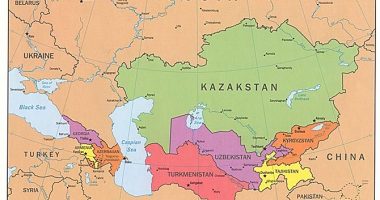

©Harmir 2021
Ernest Hemingway and Jack London both converge and diverge in their renditions of boxing, whereby similar depictions of certain character traits of boxers contrast sharply with the authors’ adherence to either idealist or realist worldviews. The two authors have written profusely about areas of human endeavor that encompass struggle and toil, including boxing. In several short stories and books, both authors depict professional and amateur boxers who embody such noble character traits as courage, perseverance, and moral fortitude. London’s characters are more idealized, though, striving to live by certain rules. Hemingway’s protagonists appear more realistic, laying bare all the attendant the human vices that do not necessarily conspire to make villains of them. What connects these two authors is their depiction of two alter egos in the personality of a boxer—the one manifested outside, the other inside the ring. While the former is susceptible to the dangers of the corrupting influence of indulgence, the latter unleashes the morale of the warrior, intent on achieving a just victory. Hemingway and London also speak at length about social life outside the ring that does everything to adulterate the moral fabric of an athlete. The dilemma between the quests for money and virtue continues to this day, as personified by probably the two greatest boxers of our time. Eventually, boxing is larger than a sport: it is indeed about the struggle to live and let the others live. What matters is how people behave themselves in that struggle without losing face.
Among the preeminent writers of the 20th century are Jack London and Ernest Hemingway. They have a lot in common, from the propensity to describe the nature of tough men to their writing style and similar conceptions of boxing. Both lacked an academic degree above high school, but their innovative styles were shaped under the circumstances of hard life—saturated with diverse adventures and their keen flare. Decades go by, but the names of such monumental authors as Hemingway and London are brought up time and again: they have come up with thoughts that never get obsolete; there are their protagonists who never stop engaging; and there is boxing as rendered by them that is reality, we find ourselves in.
Over the centuries, scientists have studied human nature, trying to encode every single phenomenon with standard explanations; but none of valid theories could be profound enough to confine and unequivocally set out why one boxer stands still and takes all the blows on his skin. He will lose anyway, as in the scorecards he falls behind much, and there are still some rounds left to be tortured and possibly contact death while the rival sticks his gloves into his jaw. All the odds are against him and his welfare: it is hard for him; it is callous. But one should not think that he is not capable of understanding what is good and what is bad for him—the artist does not stagger, does not reel, and even if he does, recovers the balance to prove not to the spectator, but to himself that—in the words of Hemingway from The Old Man and the Sea (93)— “Man is not made for defeat. A man can be destroyed but not defeated.” This topic that arouses mighty questions suggests they are to be tackled with equally complex answers; but there are still those that remain uncertain to boot.
In their professional careers, boxers get two matches per year, on average. Obviously, they toil immensely to prepare themselves. Working on the body and mind more than twelve hours per day inculcates an athlete with an inflexible desire for victory. The path toward the big ring is rugged and windy: reaching its every curve marks a green light above. After complying with whole criteria such as good shape, necessary weight, and supernatural spirit, a professional affords himself to pull the ropes up and step into the ring. All what a boxer had done before the contest was sacrifice for these twelve rounds that transpired as the ultimate payoff at this crucial moment of his lifetime. This idea is most poignantly put forth by Jack London: ”The proper function of man is to live, not to exist. I shall not waste my days in trying to prolong them. I shall use my time.” At this point one comes to perceive the worth of their previous sacrifices. As a diver would dream of swimming with dolphins in a deep and dark ocean at his death, or a drunkard would prefer to mitigate the sorrow with a mouthful of liquor, in a very similar manner the boxer might give his life without much care, while leaning on a stretcher and seeing his antagonist with fists held high. Why does victory not affect a person as dramatically, as does defeat? The time goes by, and professionals get addicted to their trade. On the other hand, creating a pure career augments the odds of it becoming tainted. For instance, Fifty Grand written by Ernest Hemingway and The Mexican (from the book: The Night-Born) penned by Jack London reflect typical characters that boxing may forge. Are the aspects played up much or not in these works?
Both Jack London and Ernest Hemingway are best known for their style of illustrating struggles for survival that individuals experience, and they both had practiced boxing as a hobby, grasped its majesty, and found how it related to the usual lifestyle of men, and how in both areas corruption existed (Martin and Austin 70). Thematically the foremost variations between Jack (Hemingway’s protagonist) and Rivera (London’s protagonist) are their ages and goals: one is an experienced warrior who has reached his glorious peak long ago and intends to make a big sum from the bout against a rising young boxer who has influential promoters and comes to challenge his championship title. Rivera is a juvenile athlete, who—having passed through the travails of day-to-day life— supports the Mexican Revolution and works as a janitor at Junta’s headquarters. All of a sudden, he luckily gets a chance to substitute for the disqualified competitor of a 24-years-old champion. Hence Rivera aimed to give his possible earnings to Junta to buy weapons and hold out against the opposition. While agreeing on the conditions for the fight, he consistently proposed the clause whereby the winner takes all prizemoney. Objectively, despite his fortitude and charisma, Rivera is naïve, and it is hard to recall an occasion when a rookie stands out the incumbent champion and gets it all the way to victory. Eventually, Rivera won largely due to converting his spirit into physical strength and stamina, despite the fact that the referee and judges were bought off, as his ascension menaced their budget. The narrative encompasses some extremities, but its essence reveals that incandescent temperature of a fighter can accomplish more than others would have expected. In fact, certain events time and again convince scientists to enlarge the boundaries of their comprehension of men’s abilities. For instance, in 2019, Eliud Kipchoge broke his own marathon record with a result of 1 hour, 59 minutes, and 40 seconds. Meanwhile, biologists considered such a result as being beyond the capacity of human being.
In Hemingway’s Fifty Grand, Jack happens to be more realistic. The engaging plot makes reader to love Jack, though he has bet on himself to lose. When Jack got a punch under the belt and the referee intervened grouchily, he lied to the referee by saying that it was not a foul committed by the opponent. Before the fight, he did not believe in his residual strength and in an attitude of apathy drank heavily during the entire period of workout. In retrospect, however, this makes sense, since during the initial rounds of the match proper he appeared stronger than his opponent. However demotivated prior to the bout, Jack cannot help but be in his element once the gong tolled the real fight. It was clear that whenever he gets into the ring, his soul of a warrior roars, and while facing off the opponent, he cares about nothing but prevailing in the circle of masculinity. In the end, after some exchange of knockdowns and hard strokes, Jack lastly sends the rival (Walcott) off with the punch like the one in its strength and impudence that he had took and held out beforehand. Finally, Walcott falls, and Jack overcomes his distraught, which had built inside him since the implied arrangement of the fixed match.
This kind of boxing scene is most pictorially portrayed in the movie Rocky Balboa 2006 starred by Silvester Stallone, where the following attendant quote best symbolizes and perpetuates the warrior’s spirit: ”It ain’t how hard you hit…It’s how hard you can get hit and keep moving forward. It’s about how much you can take and keep moving forward!” Drawing conclusions from the pieces by Hemingway and London, it becomes clear that there are two alter egos inside a boxer—the one revealing itself inside the ring, the other present outside of it. For instance, once stepping into the ring, Rivera unleashed the beast under his skin, and appeared before the eyes of his opponent and the spectators alike in such a guise that appalled those who were accustomed to his tranquil personality. In a similar vein, in his short story The Killers (From the book: The Short Stories of Ernest Hemingway) Hemingway depicts a situation, when two intimidating thugs enter an inn, order some food, and then threaten the stuff and tie up the cook, awaiting to meet and kill Anderson, the prizefighter who frequented the place. When it gets late, and the boxer does not happen to show up, the thugs—still intent on taking vengeance for one of their friends—leave the place with resolve to finish the work at some other place and time. Nick, one of staff members of the inn, comes to the apartment where Anderson was living, and leaks about the impending danger to the latter’s life. The news does not bewilder the boxer: he exclaims that everything is fine, and maybe it is just a bluff; thus, he will not flee the town. In stark contrast with Anderson’s composure, once getting back to the inn, Nick, along with the owner, and the cook, appear extremely troubled and determined not to come across with the would-be killers anymore.
In their analytical piece on boxing in literature, Michael Martin and Stephen Austin (79) conclude that Hemingway remained in London’s corner—learning from him and “exploring London’s literary and sociological jabs and feints.” In the second chapter of The Abysmal Brute, London describes a young muscular giant (Pat Jr.), whose father was a boxer. Having encountered with sport corruption and dishonesty a lot at his time, the father insulated his son from social interactions and attendant disappointment. While hosting his boxing manager, and already having made an oral contract with him on his son’s entrance into big ring, the father admonishes his interlocutor not to accustom his son with fake and fraudulent part of the sport. He also stresses that Pat Jr. is not aware of deception, adding that what he knows of in connection with boxing is just bravery, glory and fighting romance. Here Jack London is presumably alluding to social life—full of risks, alerts, and adversities—hence imbuing his characters with pure values. He raises a question as to how long individuals can live unadulterated while staying in a corrupt environment.
Communication is always suggestive of interplay of personas. Life and boxing can be seen as collision of values, where the dominators adjust the others in accordance with their outlook. Individuals fit into their deserved spots in society and gain moral and physical fortitude thanks to interpersonal interactions over there. In larger society though, absolute attitudinal values and aspects get washed away in the unstoppable torrent of reality that blurs the lines distinguishing between good and evil. The clue to boxing psychology as propagated by Hemingway and London—still extant to this day—is to prioritize principals over pleasures. Thus, instead of yielding to self-indulgence, men need to win over and subjugate it. The underlying philosophy is not to avoid challenges and vices, but to live through them and emerge as a man of honor who has experienced a lot in his day yet has not lost his human face.
In the novel The Sun Also Rises, Hemingway speaks about the lost generation (without calling it such) and tells us about real events he once faced—when the main pursuit of men becomes drinking. They drink insatiably, every day. In one of the scenes Cohn—a man who once practiced boxing, then turned into literature—asks: “Don’t you ever get the feeling that all your life is going by and you’re not taking advantage of it?” (17). This quote articulates the genuine essence of Hemingway’s protagonists: they sense that their lifestyles are not the ones they would have dreamed of yet cannot find enough willpower to abandon them.
In the real boxing world, Floyd Mayweather made his impeccable career with fifty wins and no losses. He was from a box-admiring family; and his absolute speed and razor-keen reaction dazed all his opponents. At the same time, what he really cared for was business and money, and there were times when Mayweather exposed his fright of staining own career by refusing to take on the best of the contenders. Nowadays, he picks up semi-amateur and juvenile athletes who have practically no chances to defeat him, thus earning huge sums from meticulously chosen and theatrical fights. Another veteran of that generation is Manny Pacquiao, a Filipino boxer and politician. He enjoys his nation’s love and respect and is engaged in many philanthropic projects. In August 21 of this year, Pacquiao is scheduled to fight against the unbeaten leader of welterweight championship (Errol Spence Jr.), another immensely talented athlete in his own right. Boxing makes money, that is right, but would a 42-year-old senator challenge the strongest contender for money only? Young generations take on older ones, assume the part of their glory and drive them out of play; in the meantime, some stand out to win the last battle and prove that their generation does not yield that easy. In this respect, Manny’s fight will be also for Floyd, for the vindication of the “old school” in an unequal showdown with the younger generation, in which standing erect after the final countdown in the twelfth round will carry the weight of victory.
Boxing continues to reverberate throughout imaginations of authors of fiction to this day, who try to draw parallels between the sport’s underlying philosophy and attendant personal psychology and those encountered in everyday life. Hemingway and London may have idealist or realist worldviews concerning boxing. What is more important to the reader is that both authors use the topic of boxing to describe the situations in everyday life permeated with struggle and the quest for inner victory. The contemporary reader benefits immensely from the works of these two sages and comes to understand that rather than victory, what matters is the person’s ability to face and live through the fight.
References
Hemingway, Ernest, “Fifty Grand.” The Atlantic Monthly, vol. 140, no 1, July 1927, pp. 1-15.
—. The Short Stories of Ernest Hemingway. Scribner, 1953. pp. 172-178.
—-. The Sun Also Rises. Scribner, 1954.
—-. The Old Man and the Sea. Scribner, 1952.
London, Jack. The Abysmal Brute. The Century Company, 1913.
—-. The Night-Born. Simon & Schuster, 1912.
Martin, Michael J., and Stephen F. Austin. “In the Same Corner of the Prize Ring: Jack London, Ernest Hemingway, and Boxing.” Studies in American Naturalism, vol. 11, no. 1, pp. 69–83, doi:10.1353/san.2016.0014.









